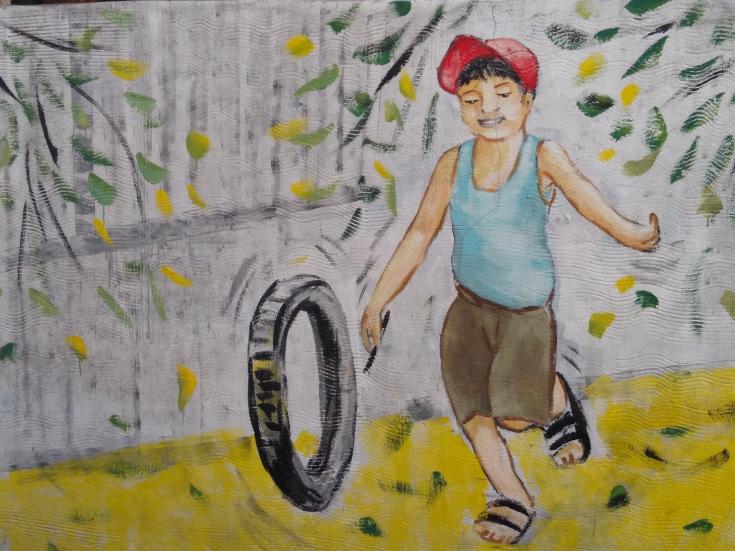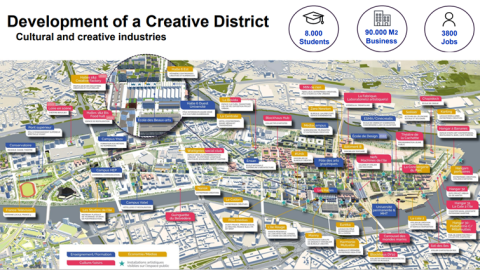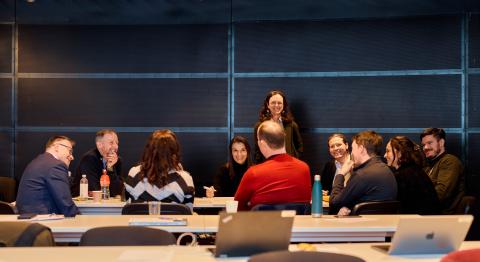Harnessing local culture for urban regeneration - key learnings

The Interreg Europe Policy Learning Platform organised an online discussion on Harnessing Local Culture for Urban Regeneration, on Thursday 22 February 2024.
European urban areas host over two-thirds of the EU's population and real drivers for growth and development. At the same time, they are facing persistent problems ranging from unemployment, segregation and poverty to shifting demographics and economic decline. (European Commission). Urban regeneration is a strategic, place-based response to these severe challenges, advancing economic growth, social cohesion and sustainable development.
Local culture can be harnessed to celebrate the place’s unique identity, to foster community engagement, and to promote cultural heritage conservation (Landry). The shift towards the knowledge economy offers an opportunity to transform old industrial districts into cultural amenities, with landmarks becoming focal points for placemaking, thereby transforming underutilised spaces into vibrant hubs of creative activity.

The Île de Nantes in France is an example of a former industrial shipyard that was transformed into a creative district (see SAMOA’s presentation from Lucie Renou, Nantes, France).
- Right leadership
Effective and long-term leadership is essential for driving change and implementing policies in urban regeneration projects, especially for large-scale creative or innovation districts. Take, for example, SAMOA, a public multi-stakeholder entity entrusted with revitalising the Île de Nantes under a mandate extending to 2037 and watch the video of the urban transformation process. Urban leaders need to be forward-thinking, proactive, and capable of inspiring and mobilising the community towards common goals.
- Temporary uses as spaces for experimentation
Temporary uses can be key to stimulate more flexible and agile approaches to urban regeneration and new ways to build cities around shared value and long-term impact. They provide an opportunity to embrace flexibility, experiment with various functions, and engage with the community before determining the most suitable permanent uses (see Interreg Europe IMPETUS project’s presentation from Besnik Mehmeti, National Association of Italian Municipalities Tuscany (ANCI Tuscany), Italy).
- The importance of harnessing culture in small- and medium-sized towns
Utilising cultural heritage as a catalyst for urban regeneration can serve as a powerful tool for rallying communities and addressing specific place-based challenges in small- and medium-sized towns, such as post-industrial transitions, population decline, and an aging population (see Interreg Europe INTERREVITA project’s presentation from Małgorzata Steckiewicz, City of Nowy Dwór Mazowiecki, Poland).
- Inclusive spaces
Policymakers must engage with a broad range of stakeholders to promote community engagement and determine the types of functions and amenities that would most benefit the local community. This requires dedicated resources for facilitation and animation to ensure shared ownership of regeneration projects.
- The right balance between hard and soft infrastructures
Leveraging culture for urban regeneration projects require the right balance between hard and soft infrastructures. While physical spaces are crucial, the development of associative structures, social networks, and human interactions as well as the preservation of intangible cultural assets such as music, craft knowledge, story-telling and local customs are equally vital to make those spaces sustainable in the long-run.
Read our policy briefs on spaces for innovation and ‘Urban eco-systems’ as well as our urban stories ‘Daylighting rivers’, ‘Planting trees the right way’, ‘Adaptive reuse of religious heritage’ and ‘Citizen involvement for sustainable food systems’

Interested in an online discussion?
The Platform can organise an online discussion for your organisation! Submit your request through our policy helpdesk.
